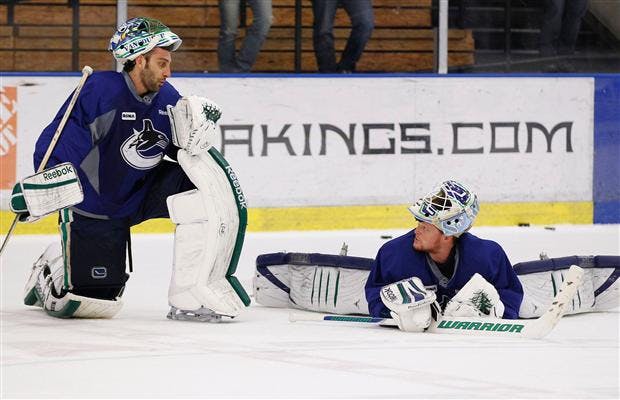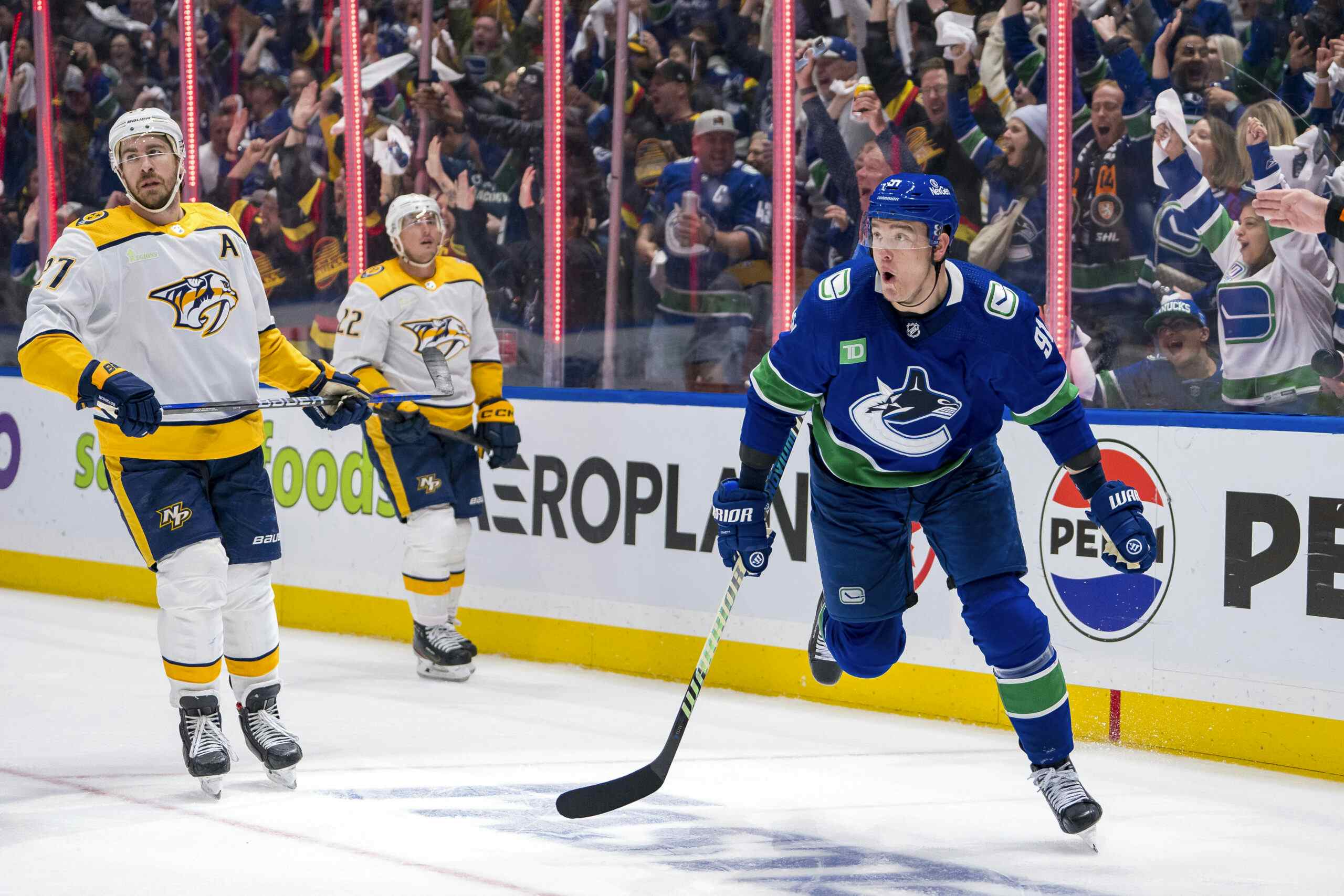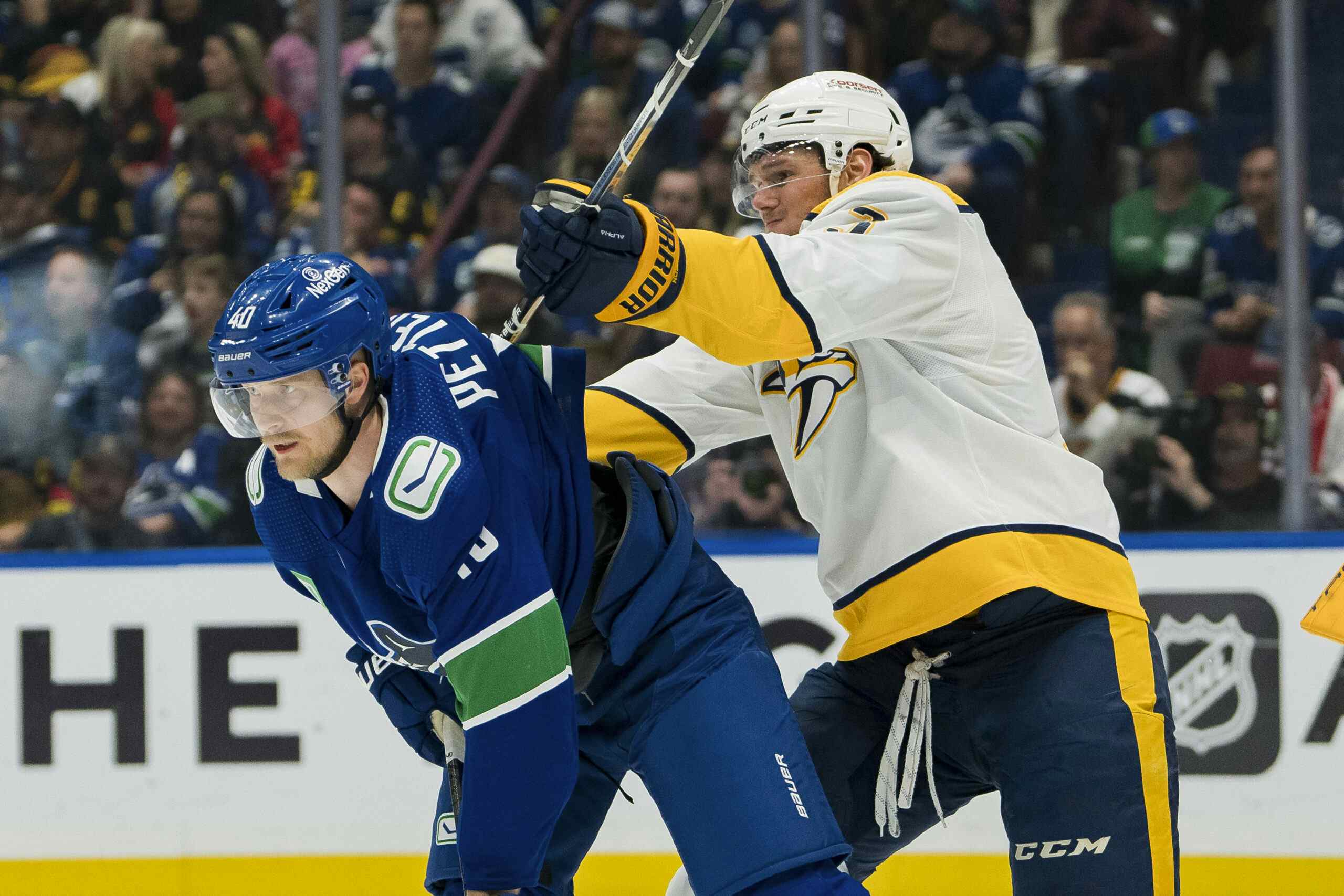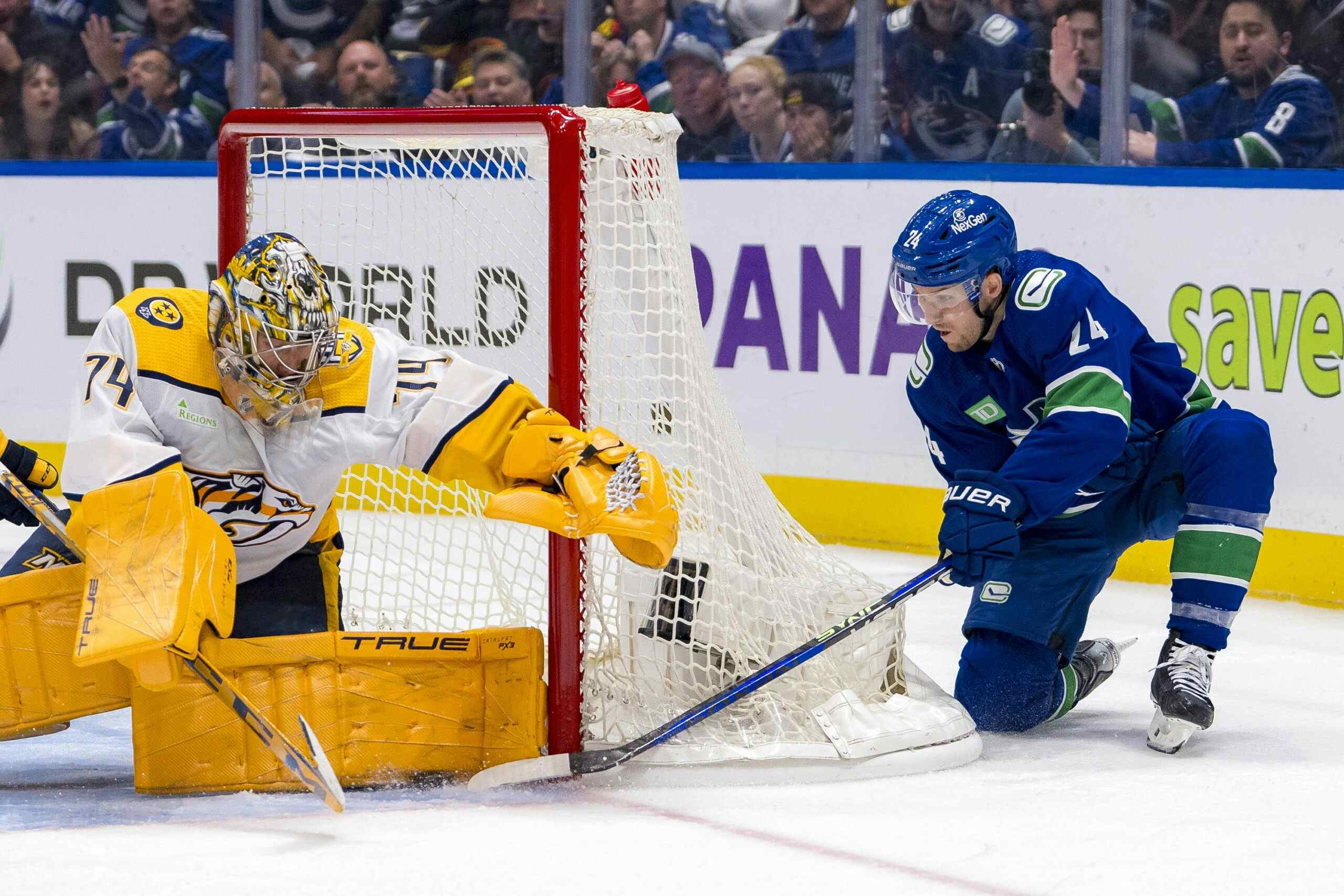Strombabble: Schneider, Bernier, Brodeur and Leverage

Now that the Cory Schneider extension is "super official," there’s some disagreement about what impact that new contract – and other recent developments on the goaltending market – will have on Roberto Luongo’s trade value. Mike Gillis has denied it on several occasions, but the Canucks have been in a "trade Roberto Luongo" posture since April. While they listened to buyers at they draft, a deal was never particularly close, and Gillis’ asking price for the team’s former captain and franchise goaler remained high. Gillis even admitted, while talking about the lack of bonafide NHL starters, that he’s "the problem" on the Luongo trade front.
As Gillis waits, the market shifts beneath him. Over the course of the past six weeks, several exchanges have worked in his favour – in particular Tim Thomas’ sabbatical and PIttsburgh trading for and signing Tomas Vokoun – while several others – Tampa trading for Lindback, and more recently the news that Martin Brodeur will test the market on Sunday – have arguably crimped it. Meanwhile with the ink still drying on Cory Schneider’s spanking new three year, twelve million dollar deal, the question of what impact that will have on Luongo’s value is still up in the air.
Let’s get into it, after the jump!
Cory Schneider’s contract in no way qualifies as a "hometown discount." It cost the Canucks more to re-sign Schneider (in terms of cap-space) than it cost Boston to re-up Tuuka Rask. Schneider’s deal will also a cap-hit higher than the one attached to the deal Winnipeg gave to Ondrej Pavelec – and Pavelec has spent two seasons as an NHL starter.
Four million per for Schneider is roughly market value considering his track record, maybe a bit higher, which, is sensible on the part of both parties since Schneider allowed Gillis and the Canucks to buy out two of his lucrative UFA years. The lack of a "discount" aside, by allowing Mike Gillis "off of the mat" to some extent, Schneider has shown a great deal to commitment to the organization and a remarkable amount of trust in team management. That is his "hometown discount."
Based on the timing of the deal, it’s clear that Schneider trusted the team when they said "you’ll start for us next season," and he clearly believes Gillis will complete some sort of a Luongo trade before the opening of training camp. Had Schneider held out (which, would’ve been entirely understandable), had he signed an offer sheet, or had he gone to arbitration without a deal in place; he would’ve helped to significantly erode Gillis’ leverage on the Luongo trade front…
With Schneider locked up, however, Mike Gillis can bide his time. There’s no longer the threat of an offer sheet hanging over his head, and no ticking clock counting inexorably down to a mid-July arbitration hearing between Schneider and the club. Gillis now has his ducks in a row and can wait for those teams that are desperate for an elite level starting goalie to meet his exorbitant asking price. Gillis still probably won’t get all of what he’s asking for – especially if the price remain Gardiner++ or Bjugstad++ – but a potential Luongo deal is complicated enough without the pressures that would’ve arose had Schneider been less pliable.
Some folks are looking at the situation, and saying it’s possible that Gillis’ control is diminished as a result of Schneider’s new cap-hit. The thinking goes that Vancouver’s General Manager is now a "motivated seller," since the Canucks have over 9.2 million in cap-space committed to two players who can never share the ice. But I just don’t see how Schneider’s contract status has an immediate, direct impact on Luongo’s place in the Canucks lineup, since he doesn’t really have one anymore. The rub is that he didn’t yesterday morning, either.
Despite Gillis’ repeated statements to the contrary, anyone who has been paying attention has seen the writing on the wall for months: Luongo was on his way out this offseason regardless of what the team did with Cory. At the draft, potential trade partners thought they had Gillis over a barrel. He had a toxic contract to move, and a lack of cost-certainty in net. Moreover, he appeared vulnerable, and his trading partners had several levers with which to apply pressure on Vancouver’s General Manager and those levers included a potential offer sheet to Cory Schneider.
Those levers are gone now, there will be no arbitration hearing, no predatory offer-sheets (unless Eddie Lack receives one), and the Canucks know what they’ll be paying for their starter next season. In the meantime Luongo’s status hasn’t changed at all – he’s going to be moved at some point this offseason, just as he was going to be before Schneider ever put his autograph on a contract extension. Gillis has relieved some of the situational pressure on his end, while maintaining the same posture he had last week, and the week before. I can’t fathom how that can be described as a "net loss" for him in terms of his leverage.
Even with a bonafide starter in Martin Brodeur and a tantalizing young goaltender in Jonathan Bernier emerging as options over the past twenty-four hours, Luongo remains the best goaltender on the market by a country mile. Also, with the way the goaltending market is looking in light of the Rinne, Quick, Pavelec signings, you have to think that Luu is looking like alright value at his 5.4 million dollar cap-hit
I’d still be shocked if Gillis actually managed to get a top-prospect and a useful roster player in return for Luongo. Luongo is an excellent goaltender but that contract is still limiting, so the market will remain relatively soft. But, with Cory Schneider signed, I’d be equally surprised if Gillis had to take a bad contract back in return. Certainly a scenario in which the Canucks made a desperation trade for someone like Mike Komisarek was more feasible while Schneider’s status remained a question mark.
At the end of the day, Jonathan Bernier and Martin Brodeur just aren’t the slam-dunk starters coveted by the General Managers in Toronto, and Miami; and two buyers are all you need to drive up the price of an asset on the trade market.
Recent articles from Thomas Drance





